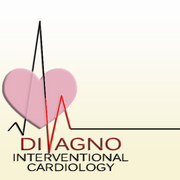
You don’t need to be a cardiac care expert to understand the basics of heart health. In fact, it’s crucial for you to know how your heart functions so that you can visit a cardiac care practice when something is wrong. If you don’t fully understand how this vital organ works, here’s what you need to know.
How Does the Heart Pump Blood?
Your heart consists of four different chambers, with two on the left and two on the right. The upper-right chamber accepts blood that’s low in oxygen from elsewhere in your body and sends it to the bottom-right chamber, where it’s transferred to the lungs through the pulmonary valve. There, the blood is filled with oxygen and is sent to the upper-left chamber. After that, the blood enters the bottom-left chamber, finally exiting the aortic valve to be distributed throughout the rest of your body. The valves open only long enough to release the blood and then close to prevent it from slipping back inside while the chambers receive new blood.
All four of the chambers and both of the valves need to be fully functional and constantly coordinate their efforts in order to make sure your blood is flowing as necessary. Barring heart disease or other issues, this is how the heart works.
What Needs to Happen for Your Heart to Work Normally?
 There’s a group of cells in the upper-right chamber of the heart known as the sinoatrial or sinus node. They emit electrical impulses throughout the heart that cause it to momentarily contract, or pump, pushing the blood through the chambers and valves. As long as the sinus node is successfully sending the electric signals, your heart will keep pumping steadily, provided the chambers keep pushing the blood on its path and the valves are opening and closing at the right times.
There’s a group of cells in the upper-right chamber of the heart known as the sinoatrial or sinus node. They emit electrical impulses throughout the heart that cause it to momentarily contract, or pump, pushing the blood through the chambers and valves. As long as the sinus node is successfully sending the electric signals, your heart will keep pumping steadily, provided the chambers keep pushing the blood on its path and the valves are opening and closing at the right times.
However, the muscle of the heart must also be in good shape. It needs to contract effectively to pump the blood, but it also needs to relax sufficiently to fill up with more blood. Since it needs oxygen and other nutrients, it must also keep some of the blood for itself. One of the many reasons why eating well and exercising are so vital for heart health is that they help the muscle stay strong and free of blockages.
To best promote your own heart health, consult DiVagno Interventional Cardiology, MD, PA in Bergen County, NJ. With over 20 years of experience and a staff of board-certified cardiovascular physicians, Dr. DiVagno will be able to diagnose and treat any problems you’re having with your heart. He guarantees prompt, informative, and compassionate cardiac care services, as he knows how crucial it is to have a healthy heart. Learn more about their cardiac care services by calling (201) 845-3535 or checking out their website.
About the Business


